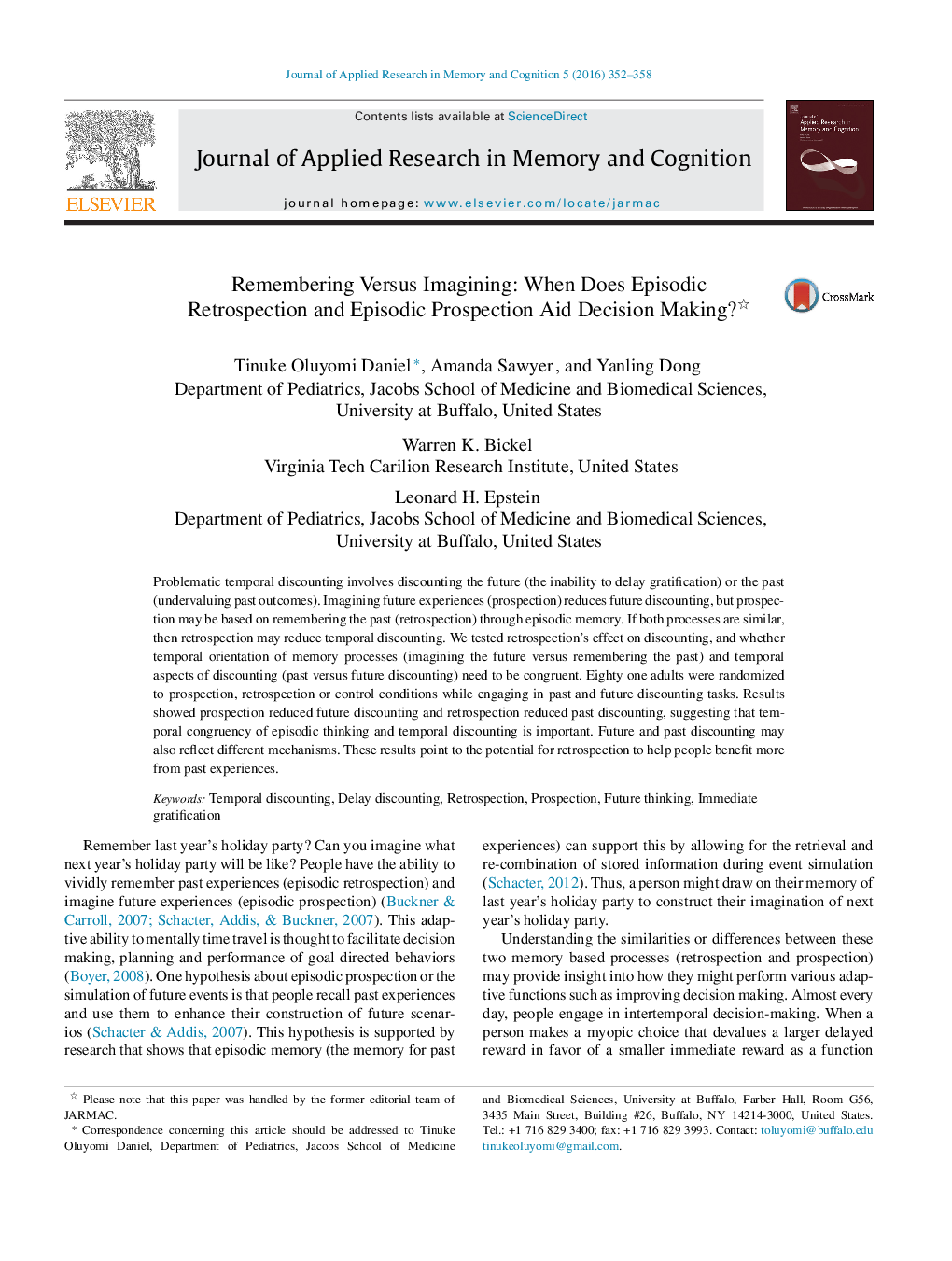| Article ID | Journal | Published Year | Pages | File Type |
|---|---|---|---|---|
| 5034059 | Journal of Applied Research in Memory and Cognition | 2016 | 7 Pages |
â¢Prospection reduces future discounting but may be based on retrospection.â¢If both processes are similar, then retrospection may reduce temporal discounting.â¢We tested retrospection versus prospection during past and future discounting.â¢Prospection reduced future discounting and retrospection reduced past discounting.â¢Temporal congruency of episodic thinking and discounting is important.
Problematic temporal discounting involves discounting the future (the inability to delay gratification) or the past (undervaluing past outcomes). Imagining future experiences (prospection) reduces future discounting, but prospection may be based on remembering the past (retrospection) through episodic memory. If both processes are similar, then retrospection may reduce temporal discounting. We tested retrospection's effect on discounting, and whether temporal orientation of memory processes (imagining the future versus remembering the past) and temporal aspects of discounting (past versus future discounting) need to be congruent. Eighty one adults were randomized to prospection, retrospection or control conditions while engaging in past and future discounting tasks. Results showed prospection reduced future discounting and retrospection reduced past discounting, suggesting that temporal congruency of episodic thinking and temporal discounting is important. Future and past discounting may also reflect different mechanisms. These results point to the potential for retrospection to help people benefit more from past experiences.
